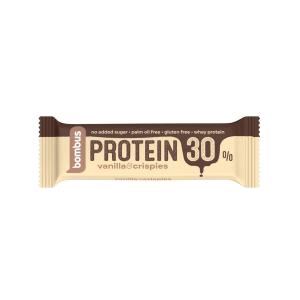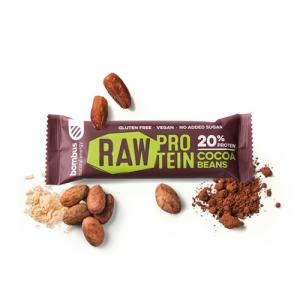
Symptoms of Excess Protein That May Surprise You

Subtle Signs of Protein Overload
Proteins are the fundamental building blocks of the body. They are essential for tissue repair, muscle growth, enzyme creation, and hormone production. However, in recent years, their role in the diet has perhaps been brought to the forefront a bit too much. Fitness culture, low-carb diets, or efforts for quick weight loss lead many people to consume large amounts of protein—and often without professional guidance. However, just as deficiency is dangerous, an excess of protein can harm the body.
Although it's common to hear advice like "more protein for more muscles," few mention that excess protein doesn't manifest immediately, and its symptoms are often subtle. The body can adapt to a certain extent, but if we burden it with an unbalanced diet for too long, sooner or later, it will start to react.
What Happens in the Body When You Eat Too Much Protein?
When the body receives more protein than it actually needs, it has to deal with this excess somehow. Proteins are not stored in the body as a reserve—unlike fats or carbohydrates. Therefore, the excess must be broken down, a process that primarily burdens the liver and kidneys, as they are involved in breaking down nitrogen, which is produced during the breakdown of amino acids.
Try our natural products
The body is thus working at full capacity to get rid of something that, while not toxic in small amounts, becomes unhealthy in large amounts. However, it's not black and white—a lot depends on where the proteins come from, how they are processed, and whether the diet is balanced in other nutrients.
How to Recognize Excess Protein
The symptoms that the body is overwhelmed with proteins can manifest in various ways—some are easily overlooked or attributed to other causes. Here are several warning signs that should not be ignored:
- Fatigue and Irritability – Paradoxically, while people often believe that more protein means more energy, in practice, the opposite can occur. Excessive protein intake while reducing carbohydrate intake can lead to lower blood glucose levels, causing fatigue, bad mood, and impaired concentration.
- Bad Breath – Ketogenic or very low-carb diets, which are usually high in protein, can induce a state of ketosis. One of its symptoms is a foul breath resembling fruit or acetone. This odor does not disappear even with thorough oral hygiene.
- Constipation or Diarrhea – If proteins replace fiber (e.g., vegetables, fruits, whole grains), digestive issues may arise. One of the most common consequences is constipation. Some people may experience diarrhea, especially if proteins are mainly consumed from dairy products, which can irritate the intestines.
- Increased Sweating and Unpleasant Body Odor – Protein digestion is more energy-intensive than other macronutrients, leading to an increase in body temperature. The body sweats more, and because some byproducts of protein metabolism are excreted through sweat, a specific, pungent odor may develop.
- Headaches and Joint Pain – Higher protein intake can increase uric acid levels in the blood, which is associated with joint pain or even gout. If pains occur without an apparent cause, it's worth considering the influence of the diet.
- Increased Thirst and Frequent Urination – The body needs more water to break down and eliminate excess nitrogen. Therefore, increased protein intake can be associated with greater thirst, more frequent urination, and in extreme cases, dehydration.
In real life, these symptoms often appear simultaneously. For example, an athlete trying to gain muscle while following a low-carb diet based on cottage cheese, chicken, and protein shakes may start experiencing constipation, fatigue, and headaches after a few weeks. Before realizing that the problem is an incorrect balance of nutrients, several months often pass.
How Much Protein Is Too Much?
The recommended daily protein intake for an average adult is about 0.8 grams per kilogram of body weight. For athletes or individuals in specific situations (e.g., recovery), this value may be higher—up to 1.6 or exceptionally 2 grams per kilogram. However, many people today regularly consume 3–4 grams per kilogram—and often without realizing it.
For example, a 100-gram steak, yogurt, egg, and protein shake can together amount to up to 100 grams of protein—which is already double the recommended daily intake for a person weighing 60 kg.
Moreover, it is important to distinguish the quality and source of proteins. Various studies show that plant-based proteins (e.g., from legumes, nuts, seeds, or whole grains) have a different impact on the body than animal proteins. While plant-based proteins are associated with a reduced risk of cardiovascular diseases, diets high in animal products (especially red meat and processed meats) are more frequently linked to inflammatory processes and greater kidney strain.
Sustainable Approach to Proteins
In today's world, where diets are often influenced by fashion trends and nutritional supplement marketing, it's easy to slip into a one-sided view. A healthy amount of protein should be part of a varied and balanced diet, not its centerpiece. Diversity in protein sources not only supports gut microbiome health but also reduces the risk of overloading the body.
The method of food preparation also plays a crucial role—instead of fried meats or industrially processed protein bars, it's better to choose natural and gently processed foods. For example, lentils, fermented tempeh, nuts, seeds, or quality plant-based alternatives are excellent sources of protein that also support sustainability and save the planet.
As nutrition expert Marion Nestle says: “Health is not about eating one superfood, but about the overall picture of our daily choices."
This approach—sustainability, diversity, and moderation—can be key to a healthy relationship not just with proteins, but with nutrition in general. Meals should not only be nutritionally beneficial but also a joy. And if unexplained health issues arise, it might be worth considering the question: could there be too much protein in my diet?







